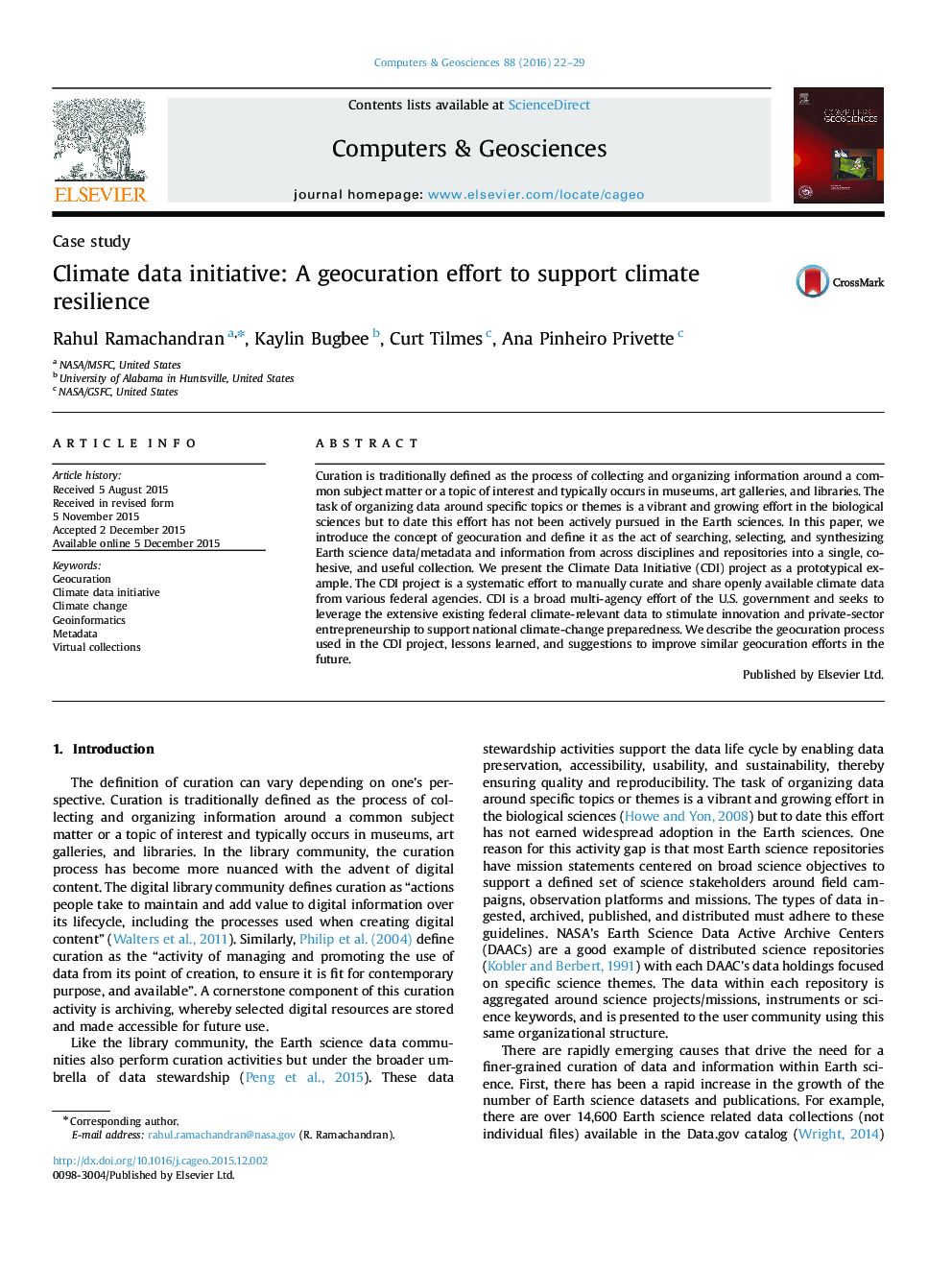| Article ID | Journal | Published Year | Pages | File Type |
|---|---|---|---|---|
| 507100 | Computers & Geosciences | 2016 | 8 Pages |
Curation is traditionally defined as the process of collecting and organizing information around a common subject matter or a topic of interest and typically occurs in museums, art galleries, and libraries. The task of organizing data around specific topics or themes is a vibrant and growing effort in the biological sciences but to date this effort has not been actively pursued in the Earth sciences. In this paper, we introduce the concept of geocuration and define it as the act of searching, selecting, and synthesizing Earth science data/metadata and information from across disciplines and repositories into a single, cohesive, and useful collection. We present the Climate Data Initiative (CDI) project as a prototypical example. The CDI project is a systematic effort to manually curate and share openly available climate data from various federal agencies. CDI is a broad multi-agency effort of the U.S. government and seeks to leverage the extensive existing federal climate-relevant data to stimulate innovation and private-sector entrepreneurship to support national climate-change preparedness. We describe the geocuration process used in the CDI project, lessons learned, and suggestions to improve similar geocuration efforts in the future.
